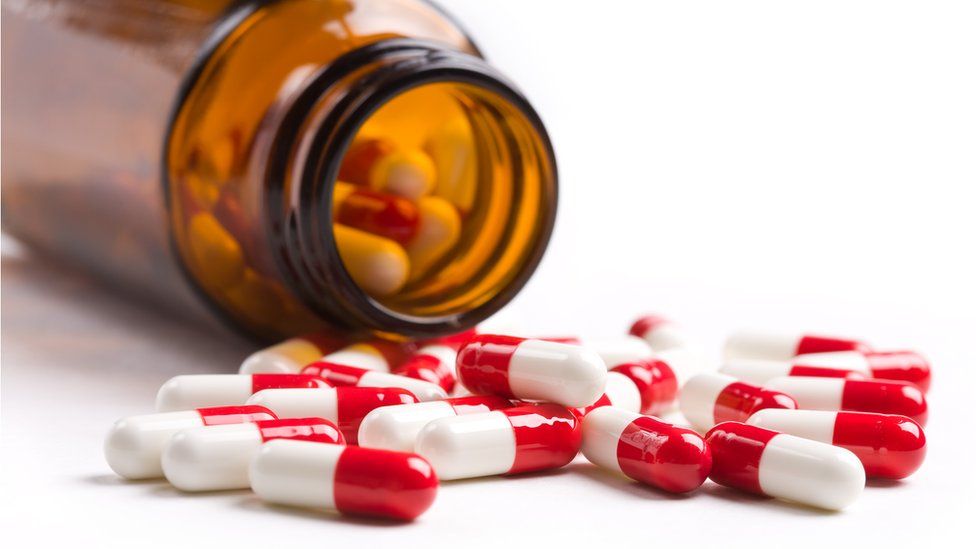ARTICLE AD BOX
 Image source, Getty Images
Image source, Getty Images
By Michelle Roberts
Digital health editor
Pupils at schools affected by streptococcus A could be given preventative antibiotics, the schools minister has confirmed following the deaths of some from severe infections.
Nick Gibb said the use of antibiotics "is an option" and the issue had been raised in the House of Lords on Monday.
The authorities are working closely with the school.
Updated UK guidance on scarlet fever outbreaks (which are caused by strep A) in October, says antibiotics can be used to help stop new cases of strep A in settings such as schools but a decision should be taken with local outbreak-control teams on "a case-by-case basis".
Adam Finn, professor of paediatrics at the University of Bristol, told BBC News the bar for treatment may now be low.
"The standard guidelines are that you wait for two cases in an institution like schools before you go out with antibiotics... - but given the number of cases and the concerns that obviously exist at the moment, those guidelines may well be adjusted and we may see more broad antibiotic use."
Bacteria circulating
Health experts say parents and doctors need to be vigilant and alert to the symptoms of infection.
And the UK must brace itself for more cases, as levels of the bacteria circulating are higher than usual for this time of year.
An early start to the strep-A season in the UK could be a side-effect of the easing of pandemic restrictions - people mixing more means infections can be transmitted.
Strep A can cause a range of illnesses.
Most cases are mild - a sore throat or skin infection easily treated with antibiotics.
Some people develop scarlet fever, which causes a skin rash that feels like sandpaper and flu-like symptoms including a high temperature.
Very rarely, strep A can cause invasive group-A streptococcal infection (iGAS), which can be deadly.
Invasive disease happens when the bacteria breaches the body's immune defences.
- fever - a temperature above 38C
- severe muscle aches
Urgent early medical help is essential.
What should parents do?
Trust your judgement if your child seems seriously unwell
Contact your local surgery if they:
- are deteriorating
- are eating much less than normal
- show signs of dehydration, such as a dry nappy for 12 hours
- have a temperature of 39C or higher, or 38C if under three months
- are a baby and feel hotter than usual when you touch their back or chest or sweaty
- are very tired or irritable
Call 999 or go to an accident-and emergency unit if:
- they are having difficulty breathing - you may notice grunting noises or their stomach sucking under their ribs
- they are pausing when they breathe
- their skin, tongue or lips are blue
- they are floppy and will not wake up or stay awake
Related Internet Links
The BBC is not responsible for the content of external sites.

 2 years ago
39
2 years ago
39








 English (US) ·
English (US) ·